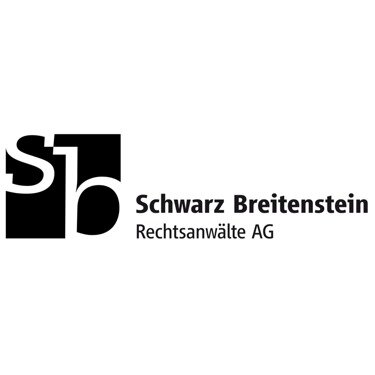Best Trusts Lawyers in Switzerland
Share your needs with us, get contacted by law firms.
Free. Takes 2 min.
Or refine your search by selecting a city:
List of the best lawyers in Switzerland
About Trusts Law in Switzerland
Switzerland, known for its robust financial systems and legal structures, presents a unique environment for Trusts due to its civil law framework. Unlike common law jurisdictions that have a long history of Trusts, Switzerland's concept of Trusts is primarily influenced by international standards, particularly following its accession to the Hague Convention on the Law Applicable to Trusts and on their Recognition in 2007. While technically not embedded within Swiss domestic law, trusts can be recognized and enforced to an extent in Switzerland if they adhere to relevant international conventions and agreements.
Why You May Need a Lawyer
Seeking legal expertise for Trusts in Switzerland is essential for several reasons. Establishing a trust involves complex decision-making requiring in-depth legal knowledge to ensure compliance with both Swiss and international laws. You might need a lawyer if you want to:
- Navigate the intricacies of asset protection and wealth management.
- Settle family succession plans while considering Swiss inheritance laws.
- Ensure tax efficiency while aligning with international tax laws.
- Obtain assistance with cross-border trust structures or property management.
- Resolve disputes related to established trusts, particularly in private wealth contexts.
Local Laws Overview
Switzerland's approach to trusts is mainly guided by the Hague Convention, which allows the use of trust structures recognized under foreign law. Key aspects include:
- Recognition: Swiss authorities recognize trust legal frameworks and their effects if they conform to international standards.
- Taxation: Trust income is generally liable under Swiss tax regulations, with specific considerations for transparency and reporting.
- Estate Planning: Trusts must be correctly structured to align with mandatory Swiss succession rules, which can affect the enforcement of trusts involving Swiss assets.
- International Cooperation: Swiss policies emphasize cooperation with international bodies on matters related to money laundering and financial transparency, impacting trust administration.
Frequently Asked Questions
What is a Trust and how is it recognized in Switzerland?
A Trust is a legal arrangement wherein one party holds property for the benefit of others. In Switzerland, trusts created under foreign law can be recognized if they comply with the Hague Convention regulations.
Can I establish a Swiss trust under Swiss law?
No, Swiss domestic law does not allow for the establishment of a trust. You must rely on foreign law for the creation of a trust which can then be recognized in Switzerland.
How are trusts taxed in Switzerland?
Taxation depends on the structure and jurisdiction of the trust. Income generated by the trust could be subject to Swiss taxation, and it's mandatory to disclose trust interests under Swiss regulations.
Do Swiss inheritance laws affect trusts?
Yes, Swiss mandatory succession rules can supersede trust arrangements. It's crucial to ensure that trust structures comply with these rules when involving Swiss assets or residents.
Can a trust help in asset protection?
Trusts are often used for asset protection purposes, but care must be taken to align the trust structure with both the legal requirements and privacy regulations of Switzerland.
What role does the trustee play in Switzerland?
A trustee is the legal owner of the trust assets, responsible for managing them in accordance with the trust deed, regulatory obligations, and the beneficiaries' interests.
Is it possible to change a trust's jurisdiction to Switzerland?
While the trust itself remains under foreign law jurisdiction, administrative functions and certain attributes can be managed from Switzerland following recognition under Swiss standards.
How can I challenge a trust in Switzerland?
Challenging a trust typically involves legal proceedings to determine if it's valid under the applicable foreign law and whether it respects Swiss regulations such as family and inheritance laws.
What documentation is needed to create a trust involving Swiss assets?
Setting up a trust requires a detailed trust deed, identification of a suitable trustee, asset documentation, and compliance with both foreign and Swiss tax and legal regulations.
How does Swiss law handle disputes between beneficiaries and trustees?
Disputed matters can be resolved through legal arbitration or court procedures, typically requiring guidance from legal professionals with expertise in cross-border Trusts and international law.
Additional Resources
If you need further assistance, consider reaching out to the following:
- Swiss Bar Association: Offers a directory of qualified lawyers specializing in trust and estate law.
- Swiss Financial Market Supervisory Authority (FINMA): For understanding the regulatory environment related to financial trusts.
- International Trust and Estate Planning Organisations: Provides broader context and legal precedents in trust management.
Next Steps
If you're considering setting up or managing a trust in Switzerland, it is advisable to:
- Consult with a legal expert with knowledge in international trust law, particularly laws relevant to your jurisdiction of choice for the trust's origin.
- Engage a tax advisor to optimize tax obligations connected with your trust assets, both in Switzerland and globally.
- Gather all necessary documents relating to the trust property and identity of intended beneficiaries.
- Ensure continuous compliance with both ethical and legal standards to maintain legitimacy and protection of the trust's interest.
Lawzana helps you find the best lawyers and law firms in Switzerland through a curated and pre-screened list of qualified legal professionals. Our platform offers rankings and detailed profiles of attorneys and law firms, allowing you to compare based on practice areas, including Trusts, experience, and client feedback.
Each profile includes a description of the firm's areas of practice, client reviews, team members and partners, year of establishment, spoken languages, office locations, contact information, social media presence, and any published articles or resources. Most firms on our platform speak English and are experienced in both local and international legal matters.
Get a quote from top-rated law firms in Switzerland — quickly, securely, and without unnecessary hassle.
Disclaimer:
The information provided on this page is for general informational purposes only and does not constitute legal advice. While we strive to ensure the accuracy and relevance of the content, legal information may change over time, and interpretations of the law can vary. You should always consult with a qualified legal professional for advice specific to your situation.
We disclaim all liability for actions taken or not taken based on the content of this page. If you believe any information is incorrect or outdated, please contact us, and we will review and update it where appropriate.
Browse trusts law firms by city in Switzerland
Refine your search by selecting a city.
















